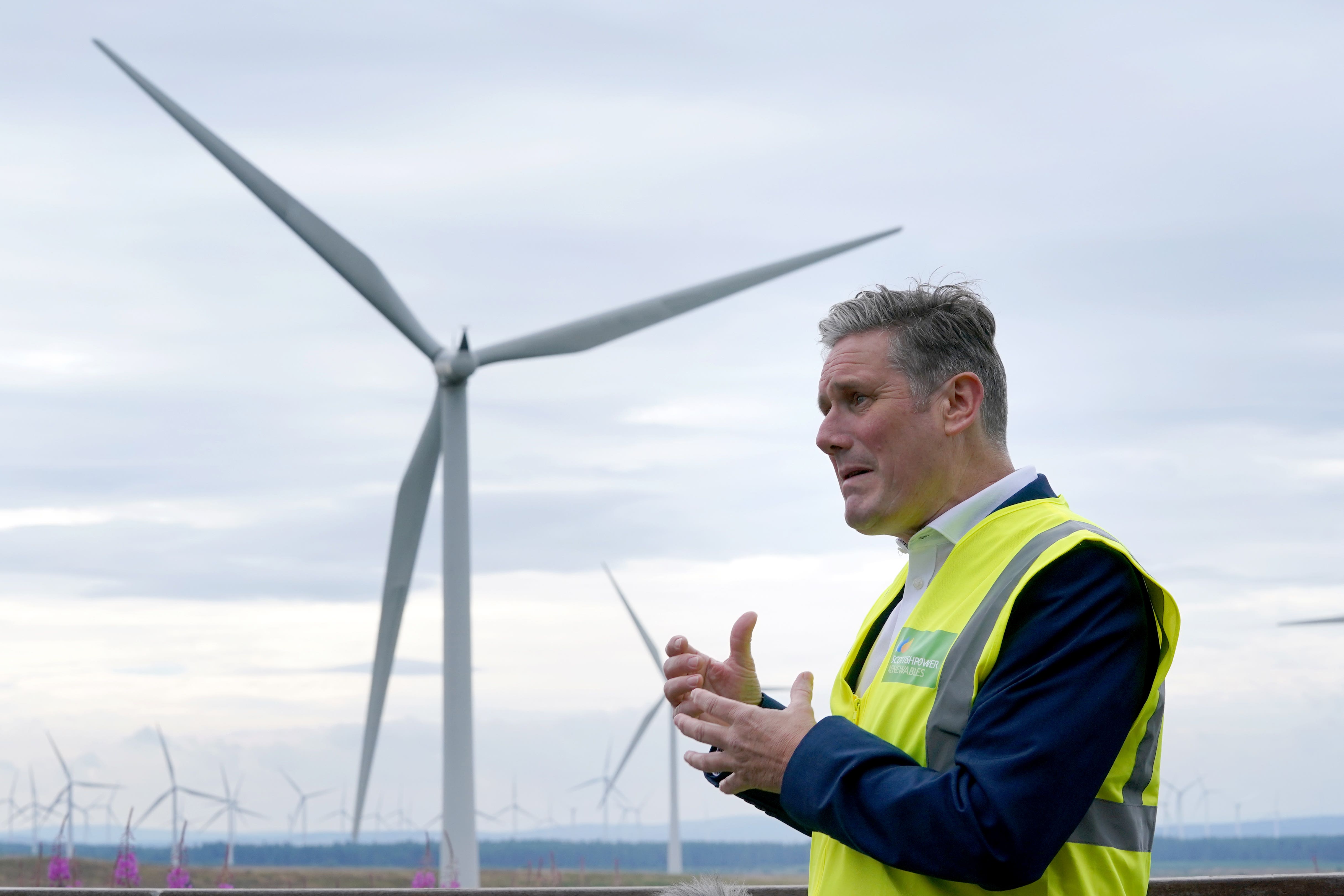Does Keir Starmer really hate tree huggers?
Voters don’t like them much either, says Sean O’Grady


Reports suggest that Sir Keir Starmer attended a shadow cabinet presentation by Ed Miliband on the climate crisis and commented afterwards that he wasn’t interested in hope and change but more interested in creating sustainable new jobs. The quoted source added: “He then said he was not interested in tree huggers, before adding to everyone’s surprise, ‘In fact, I hate tree huggers’.”
It’s a curious echo of the recent complaint made by Rishi Sunak’s environment minister Zac Goldsmith, who quit because “the problem is not that the government is hostile to the environment, it is that you, our prime minister, are simply uninterested.” He added that Mr Sunak had displayed “apathy in the face of the greatest challenge we have faced”.
On the other hand, King Charles and President Biden on Monday sat through a joint presentation on the climate crisis by John Kerry, US special envoy, and Grant Shapps, environment secretary, which certainly does suggest a certain amount of determination.
Can it be true about Starmer?
Starmer’s people deny his disdain for tree huggers, saying “he didn’t use those words” – but it has a ring of truth about it.
Sitting on a 15- to 20-point lead on the Conservatives and with about a year to the general election, one can understand why Starmer might be impatient about any policy area (and indeed party candidates) that might endanger the return of a Labour government. After all, they haven’t won a Westminster contest since 2005 and have usually performed more or less disastrously (with the possible, inconvenient, exception of Jeremy Corbyn’s campaign in 2017). That includes the 2015 election unexpectedly lost by Ed Miliband as leader, and there’s some doubt as to whether, during a cost of living crisis with gas and electric bills still at near record levels, the nation is quite as receptive to paying for the green agenda in return for hope as Miliband reckons.
Starmer is also keenly aware, as must be his shadow chancellor Rachel Reeves, that the Conservatives will use the £28bn a year committed to the green new deal as a way of undermining Labour’s fragile reputation for responsible fiscal policy, which (debatably) only looks good when set next to that of Liz Truss and Kwasi Kwarteng. Reeves and Starmer have gradually been de-emphasising the £28bn a year commitment and putting fiscal policy first. You also get the impression that Starmer doesn’t rate Ed as highly as Ed rated Starmer (given that Miliband, a resident in Starmer’s constituency, encouraged his old Oxford friend to become the candidate and MP there in, well, 2015).
Has the prime minister lost interest as well?
There’s a certain vibe that way. During the Biden visit, with time so short, Sunak stuck to Nato and the Ukraine crisis and “delegated” the climate stuff to the king and Grant Shapps down at Windsor. It’s certainly true that Sunak doesn’t display the same passion for the subject as Boris Johnson did when he was prime minister and chairing the COP26 conference, for example. The basic truth is that, for Sunak and Stamer, and indeed most other world leaders the war in Ukraine and the consequent climate crisis has inevitably altered priorities. More speculatively, the tactics (though not objectives) of groups such as Just Stop Oil may be proving counter-productive with public opinion, stigmatising it as a cranky rather than everyday, mainstream cause.
What do voters think?
The climate crisis and the environment ranks fairly middling on the voters’ list of worries. Way ahead is the NHS, inflation/cost of living, schools, the economy generally and housing. Having said that, the Greens are polling a pretty strong 8 per cent or so (all figures from Ipsos), suggesting that for those who do care, it matters a very great deal. Labour has a surprisingly small lead over the Conservatives on the issue (considering all the controversy about sewage in rivers), and there’s a preponderance of “don’t knows” when asked about which party is best on the issue.
In other words, if Sunak and Starmer are both not as focused on the environment and the climate crisis as they might be, then they are only reflecting public apathy and the lack of electoral potency in the issue. That does depress some of the main parties’ more green and politically engaged members, and the likes of Goldsmith and Miliband. No doubt King Charles, known to be fond of trees, is also disappointed. He won’t be voting, though.



Join our commenting forum
Join thought-provoking conversations, follow other Independent readers and see their replies
Comments